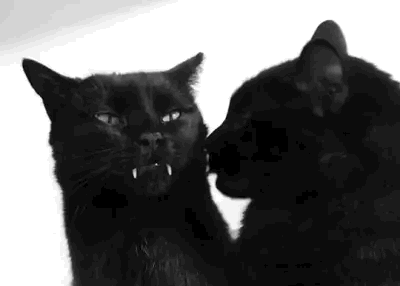#The White Darkness
Text
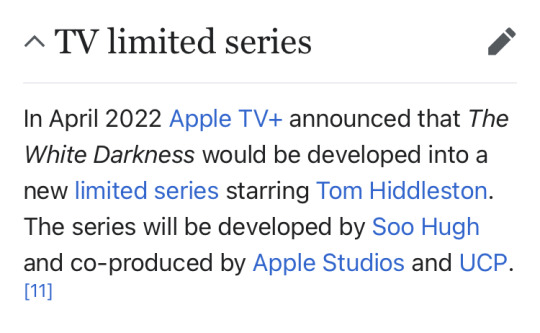
Terror fans and polar exploration friends, did you know about this? I'm not sure how I feel about Tom Hiddleston as Henry Worsley, but I'm delighted to see Soo Hugh back in her element, running shows about polar explorers dying badly.
#the original article version of The White Darkness was the thing that first made me insane about polar exploration#Tom Hiddleston's a good actor so I'm sure he'll be fine#but I'm so used to him playing fancy boys rather than rugged adventurer types#we'll see how this goes#the white darkness#polar exploration#henry worsley#the terror#the terror amc
112 notes
·
View notes
Note
There was a drop about developing The White Darkness for Apple in an article about female producers. I did not save it, sadly but it sounded that it is still very much in development
Soo Hugh is speaking at a conference in May 2024, and it's listed as part of her bio.
Following the success of Pachinko, Hugh is continuing her fruitful partnership with Apple TV+ as co-showrunner of The White Darkness based on David Grann’s nonfiction book of the same name, the project is inspired by Henry Worsley, played by Tom Hiddleston. Hugh recently signed a multi-year overall deal with UCP to develop, write and produce projects in addition to launching an incubator program, The Thousand Miles Project, to help bring more AAPI stories to cinematic life and jumpstart fruitful careers in the entertainment industry.
12 notes
·
View notes
Text
David Grann is the first to say he isn’t a natural-born explorer. Thanks to a degenerative eye condition, the longtime New Yorker writer sees the world as though looking through a windshield during a rainstorm. He doesn’t hike or camp, and he has a tendency to take the wrong train when he rides the subway. While researching The Lost City of Z, his 2009 book about a Victorian-era adventurer who went missing in the Amazon and never returned, he briefly got lost in the Amazon himself. So it wasn’t all that surprising when, on a sunny morning in April, Grann showed up at the wrong location for our interview. When I found him on the sidewalk near the South Street Seaport Museum, where we were supposed to meet, he was grinning from ear to ear. “It’s just like me to get lost,” he said, laughing.
Grann, 56, may not have the strapping physical attributes of his subjects, but his meticulously researched stories, with their spare, simmering setups that almost always deliver stunning payoffs, have made him one of the preeminent adventure and true-crime writers working today. “We often think that reporters have to be super-capable in every way in order to get the best material, but sometimes if you have something like weak sight, you compensate in such a brilliant way that it’s better than if you have the best vision,” said Daniel Zalewski, Grann’s longtime editor at The New Yorker. In just over a decade, Grann has published The Lost City of Z; Killers of the Flower Moon, about the targeted assassinations of members of the Osage Nation; The White Darkness, about a polar explorer obsessed with crossing Antarctica alone; and two collections’ worth of magazine stories about murderers, master manipulators, and scientists on the hunt for the elusive giant squid.
His latest book, The Wager: A Tale of Shipwreck, Mutiny, and Murder, traces the journey of the H.M.S. Wager, a British warship that ran aground on a Pacific island in 1742 while on a secret mission. Stranded, the crew members mutinied and spent months fighting for survival, testing not only their physical limits but those of military law and the social order. Multiple groups of survivors miraculously made it back to England only to offer different, sometimes conflicting, accounts of the ordeal. More than the adventure story, the Rashomon-like atmosphere is what gives The Wager the intellectual heft of a David Grann endeavor. “After all they had been through — scurvy, shipwrecks, typhoons, violence — these castaway voyagers are summoned to face court-martial, and they could be hanged. So hoping to save their lives, they released testimony or written accounts, which became quite a sensation, but they also sparked this furious war over the truth,” Grann said.
After spending two years poring over journals, court records, and logbooks, he still felt he could never fully understand the experience of the Wager’s crew unless he visited the island. That’s how this reluctant explorer found himself sitting in a small boat as it motored across a stretch of Pacific Ocean often referred to as the Gulf of Pain, while waves tossed the 50-foot vessel around like a soda can. “That journey was probably stupid, probably foolish, but in the end was really essential,” Grann said. As he walked around the island, the brutal conditions the sailors described — the windchill, the lack of food, the dense foliage that suffocated their movement — felt real. “I understood why this British officer had called Wager Island the kind of place where the soul of man dies. I’m like, Okay, my soul would have died here.”
Grann grew up in Westport, Connecticut, the middle child of the late Victor Grann, a cancer specialist and recreational sailor who occasionally exhibited some of the madman qualities his son would later explore in his subjects (“If a hurricane was coming he would not sail away from it,” Grann said), and Phyllis Grann, a powerhouse book editor and publisher who shared one piece of wisdom above all: Don’t become a writer.
Like any good child, he ignored his mother’s advice. After graduating from Connecticut College, he wrote a coming-of-age novel that he never published and briefly taught fiction while getting a master’s degree in creative writing at Boston University. Eventually, he gave up on fiction and committed himself to journalism, where he has mastered a streamlined, propulsive type of narrative that readers devour for its hide-and-seek reveals. The success of that form is indisputable — Killers of the Flower Moon has sold over a million copies — but it’s not without detractors. “If you taught the artificial brains of supercomputers at IBM Research to write nonfiction prose, and if they got very good at it, they might compose a book like David Grann’s Killers of the Flower Moon,” Dwight Garner wrote in his New York Times review. Grann, however, is diligent about removing stylistic flourishes from his writing. “You’re really only as good as the material you’re working with,” he said. “You might be able to improve it some, or you may not make it as good as it could have been, but at some level, if the material isn’t good, you’re kind of sunk.”
“David spends weeks and weeks and months and months sifting through possible stories,” said David Remnick, editor of The New Yorker. “I’d wander by his office and he’d be reading these archives and old letters and all kind of material, holding the paper close to his face like an ancient Talmudic scholar.”
Nowhere are the twists and turns of Grann’s stories more hotly anticipated than in Hollywood. According to one film scout, producers sometimes hear about Grann’s ideas before he has committed to pursuing them. Four of his stories have been adapted into movies, and at least four others are in development as either films or series. The bidding war for Killers of the Flower Moon was heated, with the winners paying a reported $5 million for the rights. Martin Scorsese and Leonardo DiCaprio ultimately signed on to make the film, which is scheduled to premiere at the Cannes Film Festival in May. Scorsese and DiCaprio acquired the rights for The Wager last July, nearly a year before its publication.
Inside the Seaport Museum — where Grann revels in the knowledge that its tall ship, the Wavertree, was once battered rounding Cape Horn, just like the Wager — he tells me he doesn’t think about his projects as movies. His interest in the Wager was stoked by an 18th-century account written in stilted English, hardly cinematic gold. This account was given by John Byron (who would one day be the grandfather of the poet Lord Byron), who was 16 when he left Portsmouth aboard the Wager. As Byron’s story was one of a handful given by survivors, “I tried to gather all the facts to determine what really happened,” Grann writes in an author’s note at the beginning of the book.
Where other writers might take liberties, Grann is obsessive about accuracy. “David’s stuff reads like literature, but every detail, every quote, every seemingly implausible glimpse into a subject’s mind is accounted for,” said David Kortava, who fact-checked both The White Darkness and The Wager. Grann verifies his own work before sending it to a fact-checker, and his devotion to the fact-checking process can seem comical. The first time he asked Kortava if he had checked the spellings of his kids’ names on The Wager’s dedication page, Kortava thought Grann was joking. The second time he asked, Kortava checked the spellings. “He doesn’t have an OCD diagnosis, as far as I know, but I do, and I definitely consider him one of the tribe,” Kortava said.
Grann didn’t always have the freedom to pursue his idiosyncratic interests. He was once a general-assignment magazine writer delivering stories about Barry Bonds, John McCain, and Newt Gingrich. A 2000 profile of the now-deceased Ohio congressman Jim Traficant that Grann wrote for The New Republic helped him discover the types of stories he wanted to tell and how to go about telling them. In an Ohio courthouse, Grann unearthed a 1980 recording of Traficant, then a candidate for sheriff, talking to two mobsters. “I hear Traficant dropping the F-bomb every other word, and I hear him talking about taking bribes, and then I hear about people coming up swimming in the Mahoning River. And it was a voice that was so different from the voice I heard on C-SPAN,” Grann said. “It was kind of the beginning where I was thinking, Oh! These are the voices of the stories I want to tell. It also showed me the power of archives for the first time. You can find things that are just kind of sitting there if you look, and they can peel back façades and get you closer to the hidden truth.”
I ask Grann if he misses reporting on contemporary figures. He holds up his hand and makes a zero with his fingers while letting out a sigh of relief. “The kind of reporting I really like to do is so immersive, and usually figures like that do not want you to be with them,” he said. Their ghosts, he has learned, have no choice.
31 notes
·
View notes
Text
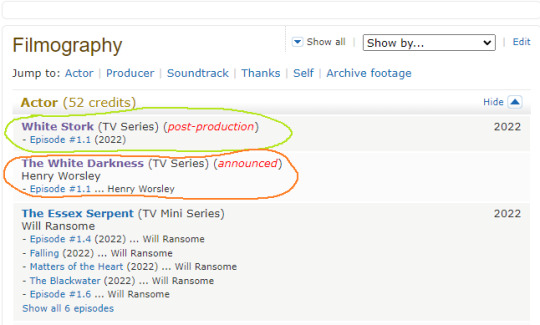
❤️ Tom Hiddleston nation WAKE UP we have more content coming and I’m so excited to see what he brings us! ❤️
#tom hiddleston#thomas hiddleston#the essex serpent#loki#loki laufeyson#the white darkness#hiddlestan#professor hiddleston#hiddles#hiddlestoners
53 notes
·
View notes
Link
‘Quick, somebody get Hiddleston a Hobnob! And sharpish — because he hasn’t a second to spare. It’s early May in North London, and the actor has generously agreed to share one of his rare days off at the pub with Gentleman’s Journal...
Except there aren’t any Hobnobs. And these iconically British biscuits, the actor tells us, are among the things he misses most when working abroad. Coupled with dog walking, West End theatre and the reassuringly dulcet tones of BBC Radio, the humble Hobnob is a cosy allegory for everything he loves about London — and the green and pleasant land that lies beyond.
...the actor has had a busy time of things of late, and his precious days of rest have been few and far between. Next week, he heads back to set to begin production on the second season of the masterfully mischievous Loki. He can currently be found starring in The Essex Serpent...And he’s just been revealed as the lead of yet another new drama series for Apple. So, while the actor has certainly earned some time off, he doesn’t seem to be getting any.
And yet, for just these few fleeting days, Hiddleston is happy kicking back and enjoying being home. So unwind with us, savour this dash of downtime, and savour the actor’s many wisdoms and witticisms. Because, whether you want marvellous Marvel secrets or you’re hoping for stories of his 2017 Hamlet, there’s something for everyone when you hobnob with Tom Hiddleston…
TH: I do miss chocolate Hobnobs. And, yes, BBC Radio. Also, now more than ever, I miss the land and the air in Britain. The smells and the sounds of the parks and the country in every season. The way the birds change their tune and routine. The feeling, when you’re home, of knowing the way. The coming of spring and early summer in London every year is a joy — every time. The streets here now have layers of memories too. As life goes on, those small familiarities are a comfort.
And my Sundays. Now, Sundays are for all the things there wasn’t time to do in the week. An extended run, a walk with the dog, an afternoon film, planning the coming week and trying not to go mad. Pubs were a part of my social life when I was younger, but not so much now. And that’s nothing to do with the pubs, more to do with life getting fuller.
Hiddleston will, however, always make time for reading. Many of his most lauded roles — from The Night Manager‘s Jonathan Pine to High-Rise’s Dr. Robert Laing — took their first breaths on the page. The actor even embodied The Great Gatsby author F. Scott Fitzgerald in 2011’s incandescent Midnight in Paris. But, whether it’s J.G Ballard or John le Carré, the bookshelf still looms large, and remains a surefire way to stoke Hiddleston’s imagination.
TH: I am more of a reader now than I used to be. Books are new worlds to be explored, learned about and understood. I buy, and am gratefully given, books at a rate faster than I can read them. There is still much I don’t know, and want to know, and reading can be a way into the minds of others. I didn’t really have an angsty go-to novel as a teenager, but I read Tolstoy’s Anna Karenina when I was twenty-one and was (am still) blown away. I find Levin’s journey extremely moving. It will never get old.
Hiddleston’s next project, The White Darkness, will adapt the true, tragic tale of British explorer Henry Worsley. It’ll stream on Apple TV+, where the similarly sorrowful The Essex Serpent is currently courting Emmy attention for the actor. To bring Sarah Perry’s bestselling gothic romance to the small screen, Hiddleston slips on the clerical collar of troubled vicar Will Ransome — a shrewd-but-subtle performance that, whilst well worth a watch on your next day off, the actor says stems from the script and novel.
TH: I read it over Thanksgiving in 2020, and had a week left on Loki. I was in America, so we had four days off. And I knew that Clio [Barnard, BAFTA-nominated director of The Arbor] was directing it. I just read all six scripts and I genuinely thought that they were brilliant and deep and complex. And Clio sent a beautiful letter with it, about Will and all the things he was wrestling with. It just seemed new and rich and I wanted to do it.
While we were filming, walking along the beach, I actually had the book with me. And I kept suggesting that we put things back, lines from the book. Perhaps that wasn’t always that helpful. But there was a line from the book that we did end up putting in the series, where Will’s trying to explain how he ended up on the east coast of Essex. And he says: “What I wanted was purpose, not achievement. Do you see the difference?”.
And I remember thinking that was just extraordinary. It really resonated with me, this need for purpose. Because purpose is so releasing, it’s a kind of freedom.
The show itself was also something of a release for Hiddleston, who relished the return to British soil after a slew of stateside projects — including the ongoing Avengers franchise, Kong: Skull Island and the Hank Williams musical biopic I Saw the Light (another of our day-off Hiddleston recommendations; he does his own singing). But The Essex Serpent’s exploration of religion also appealed to the actor; worship is not in his wheelhouse.
TH: Inhabiting Will’s faith felt like a really new challenge, and I really wanted this to be a portrait of a complex man — someone who wasn’t constrained by an easy definition — and the journey that he goes on. I was raised in London, in the United Kingdom, and I was very much raised in the Judeo-Christian inheritance of Western Europe. I went to chapel at school and I was, of course, aware of the meaning of Christmas and Easter, and the Christian tradition.
And, when I was at school, I did religious studies. But I also did biology. And, while we studied the Old Testament and the New Testament, we’d also study Darwin and the theories of evolution. As a young person, for me, Darwin was completely accepted as a way of explaining life. So I kept having to remind myself, on The Essex Serpent, that these ideas were new for these characters — they were fresh ideas that were challenging the status quo. And they were not only challenging what people believed, but also how they found meaning in their lives.
And, in the last five years, this idea of where we derive meaning in our lives has certainly been one that I can relate to. Because I’m in the middle of my life — perhaps I’m even further into my life than the middle. As a 41-year-old, I know that I’ll be fortunate if I get another 40. I’d be among the lucky ones. And I think we all deeply need our lives to have meaning. So, looking for it, or searching for a source of it, has certainly been something that has resonated with me. And inhabiting Will and his faith — the combination of his intellect, heart, mind and soul — and what he chooses to believe, this led to an openness, and a desire within myself to understand and connect.
I think curiosity is the key to all of it. It’s a vital engine in life — just to keep looking, to keep searching. And, if you can, to fearlessly ask questions. Because fear closes the mind; curiosity keeps it open.
And Hiddleston is nothing if not curious. Whether braving the viper’s nest of religion for The Essex Serpent or excoriating class and corruption in 2015’s High-Rise, the actor’s roles have frequently been characterised by big, bold ideas. And nowhere does he conjure up these principled performances more confidently than on stage.
He could be embodying vengeance in Coriolanus or wrangling with morality as Othello’s Cassio (a turn which reportedly won him the role of Loki in Thor), but Hiddleston has always best succeeded in unknotting the Bard’s tangled and tortuous emotions when face-to-face with an audience. The actor’s Hamlet, at the Royal Academy of Dramatic Art in 2017, remains one of the most scintillating Shakespearean performances of the last decade. There’s a rumour he even knows the play by heart.
TH: Not all of Hamlet! Some of it is definitely still in there, but I don’t think that’s singular or unique to me. I think, perhaps, once you have learned or played Hamlet, that it stays with you forever. The poetic clarity and profundity of those words: about grief, the vulnerability of the soul and the experience of being alive. It doesn’t get much deeper than that.
So, yes, I can recite some of it, if pressed. I was once invited as a guest onto The Late Show with Stephen Colbert — who is classically trained himself — and in the middle of the show’s planned segment we found ourselves in an impromptu Hamlet tennis rally of ‘To be, or not to be’. I could tell he was challenging me, in the most good-natured way, to see if I really knew it. I hope it was an entertaining rally. Shakespeare was the winner.
Since his Hamlet, Hiddleston’s theatre work has been comparatively rare. A run of Harold Pinter’s Betrayal gave the actor his Broadway debut in 2019 — and introduced him to his now-fiancée, fellow actor Zawe Ashton. Tonight, the couple are heading to the National Theatre to enjoy a new adaptation of Small Island. As for his own return to the stage? The hard-pressed Hiddleston’s schedule may not allow it for some time.
TH: I’d love to do more theatre. I don’t know when that may be — but I hope I always will want to. Let’s see what transpires. There’s always fun to be had in reviving classical work. I find that so rewarding. When you’re having a conversation through time, when there are certain moments in plays that have endured, when they continue to resonate in surprising ways — that’s when you realise why these pieces of art have endured. There’s something timeless inside them; what’s being explored about the human condition. And discovering them anew is always, I find, a genuine joy.
But there are also occasional pieces of new writing that seem to capture the moment. And I’ve done less of that, to be honest. I haven’t done much of that at all. But let’s see what comes around. It would be nice to be in a theatre again. It’s that thing of doing anything live, where the audience is as much a part of the performance as the performers.
Theatre may always hold a place in Hiddleston’s heart, but the last decade of the actor’s career has been dominated by a single, slicked-back, slyly pitched performance — Loki, God of Mischief. A recent revival series for the Marvel character has generated even more Emmy buzz than The Essex Serpent — a handsome pay-off for a character Hiddleston has already played in eight separate projects (and counting). And, while the actor is remarkably dissimilar to the wisecracking trickster in real life — more ‘low-key’ than Loki — he reveals that the comic-book creation bestowed upon him the most profound moment of his professional career so far.
TH: On the last day on set of Loki‘s first season, after the very last shot, we all, without instruction, seemed to stand in a circle — with nowhere to go, with the job done, and clapped. It’s hard to describe the feeling of relief, of the gratitude we felt for each other, for every member of our cast and crew. Filming had been interrupted by the onset of the Covid-19 pandemic one third of the way into our planned schedule — we locked down for five months — and we restarted after that first hiatus to resume exactly where we had left off, and to finish the story.
For the next twelve weeks, everyone working on Loki was in a contained bubble. And finishing those last months was, for most of us, during that time, our only human contact. On that last day, we had made it through the pandemic and told our story, before any vaccine against Covid-19 had been made available, and with a company, a cast and crew, who — in my experience — supported each other with a spirit, care and kindness in a way I have never seen before. ‘Whatever happens to this series’, I thought, ‘whichever way it goes, the making of it was meaningful. There is meaning in the doing’.
Of course, not every project can sing with such glorious purpose. And, whether voicing an Aardman claymation character in Early Man or reading the CBeebies Bedtime Story (Hiddleston told the tale of a benevolent crime-fighting spud named Supertato), many of the actor’s more recent appearances show off his playful side; not the cerebral, hard-lined Hiddleston of his many movies, but rather the casual, whimsical Hiddleston who joins us at the pub today.
But that’s a mean measure of the man’s acting ability; that he could raise chills in Guillermo del Toro’s Crimson Peak and share a scene with Kermit the Frog within the space of two years (Hiddleston says the Muppets offer remains the most surreal phone call he has ever received, in “prospect and reality”). But having honest fun, whether that be with Shakespearean superheroics or a guest spot on The Simpsons, seems key to the actor’s process. There’s even, would you believe, a signature Hiddleston dance move.
TH: Good heavens. Yes. I always used to do a sort of manic double-time hopscotch thing. I have never called it that until today. I sort of jump my legs out past my hips, and then jump back, one leg crossed in front and one behind. It looks absolutely as mad as it sounds.
I don’t know where it started. It ended up in a scene in Shakespeare’s Cymbeline on stage at the Barbican many years ago, in a montage in Ben Wheatley’s High-Rise, and in an appearance on Alan Carr’s Chatty Man in 2013, which I’m told resurfaced recently on somewhere on TikTok, which I am too old to understand.
When next the ‘manic double-time hopscotch’ might emerge, Hiddleston doesn’t know. But, with such a motley mix of upcoming projects in the pipeline, the actor isn’t altogether sure where he’ll end up, either. For now at least, he’s just happy to be back in Britain, relishing every precious day off, sun-soaked dog walk and Hobnob that comes his way. Because, for Hiddleston, there’s no place like home.
TH: It’s a spectacular country, but I forget that. And it’s really interesting — when I was younger, I wanted to travel all the time. I wanted to travel to Europe, I wanted to travel all over the world if I could. To America. But I think that’s maybe just the nature of being young. I wanted to see as many different places as I could. And I found that travelling broadened the mind, opened your horizons. It was expansive, it was new. And, in work, I was so fortunate that I got to travel all the time.
And it’s only more recently — since I’ve come back — that these islands are so unexplored by me. I’d seen certain cities I suppose, but there were places I hadn’t spend much time, didn’t know very well, and have been so surprised by. I find it very humbling. The happiest times in my life are when I’ve been humbled by nature; when I feel folded into it. There’s nothing better than feeling small in a natural environment that has majesty to it. For me, there’s nothing in the world bigger or more profound. It’s vital.’
#Tom Hiddleston#The Essex Serpent#Loki#The White Darkness#Apple TV+#Kong: Skull Island#Coriolanus#Hamlet#Othello#High Rise#The Night Manager#Sarah Perry#John Le Carre#Betrayal#Zawe Ashton
27 notes
·
View notes
Text
Tom Hiddleston really is shitting himself at this exact moment. This man's favourite royal died, he was in a "contractually obligated" special, has two upcoming shows, and has got a child on the way.
Man, he's not just shitting himself. He's got full on diarrhea.
#tom hiddleston#loki#marvel#zawe ashton#disney#disney+#mcu#baby hash#the white darkness#the white stork#the queen#queen elizabeth ii
9 notes
·
View notes
Text


#ordinary photo of yeti#they made astarion in a lab for me to be obsessed with.#like hottest man in game for me is halsin truthfully. astarion is my shitty little white dog with separation anxiety who bites people.#very different things. if i say i'm doing a playthrough as astarion that's when you put me down#main factor motivating me not to is i need to hear neil newbon's voice acting at least once a minute or i die.#i've got a dark urge concept rattling around the brain but i should maybe self-impose a gaming break and take care of. responsibilities 😐
57K notes
·
View notes
Text

"Was I sweet once?"
#bg3 fanart#bg3#baldur's gate iii#baldurs gate 3#baldurs gate fanart#baldur's gate 3#bg3 durge#bg3 the dark urge#the dark urge#durge#fanart#digital art#yes#yes he was#he still is if you play redemption#i just... love this white murder baby so much
21K notes
·
View notes
Text
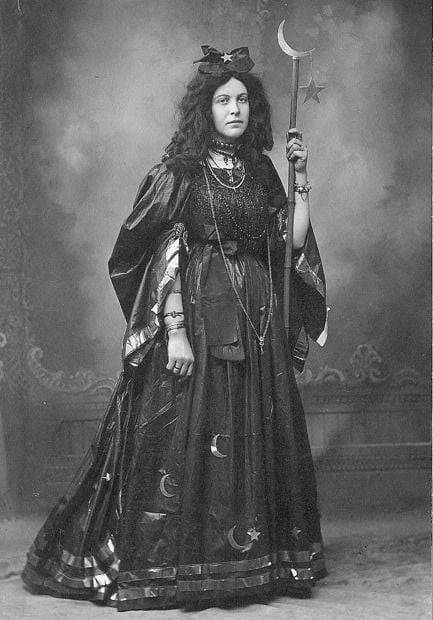

Women in celestial dresses, 1880s
#goth#gothic#beauty#fashion#black and white#photography#moon#full moon#witch#witchcore#aesthetic#alternative#dark academia#retro#vintage#love
13K notes
·
View notes
Photo

by Andrei Riabovitchev
13K notes
·
View notes
Text
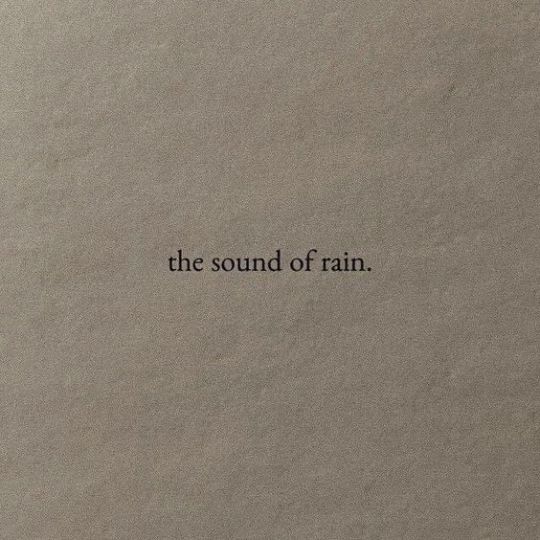
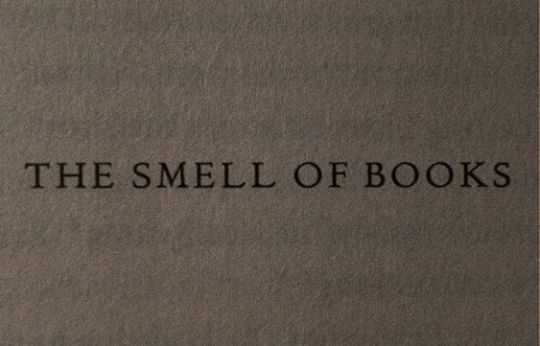
#words#quotes#book#books#aesthetic#photography#black and white#book quotes#texts#art#cottagecore#dark academia#light academia#naturecore
25K notes
·
View notes
Text

8K notes
·
View notes
Text
youtube
The White Darkness Executive Producer and writer Soo Hugh confirms the limited series will film in 2023, after Pachinko Season 2 wraps.
According to this article, Pachinko finishes filming in June 2023, so presumably The White Darkness will film in the summer/fall of next year.
46 notes
·
View notes
Text

Hanna Lee: darkness that embraces me (2023)
9K notes
·
View notes
Text
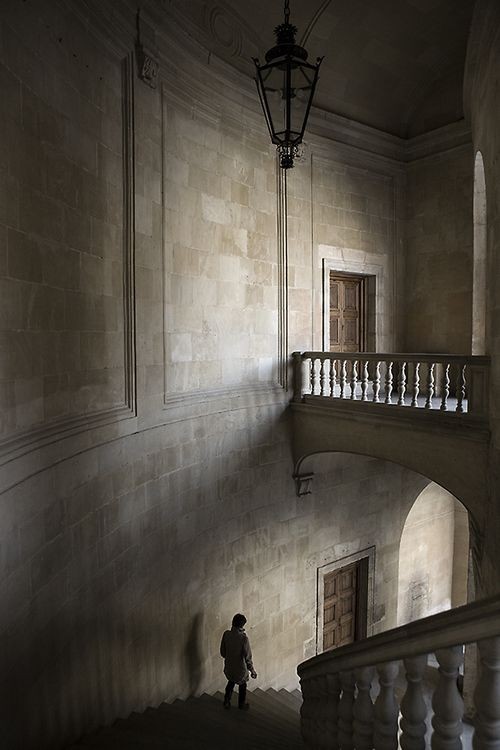

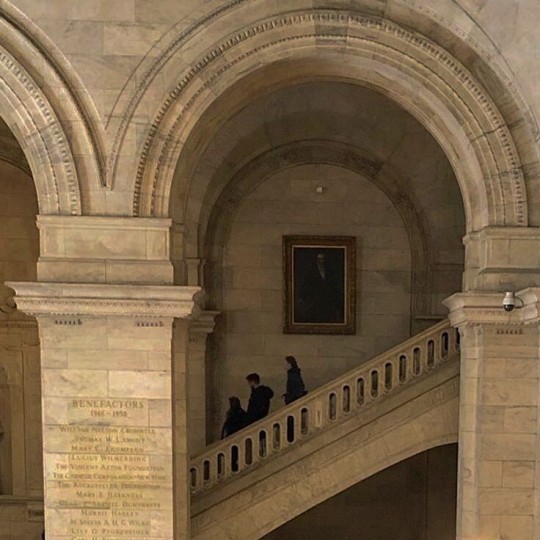

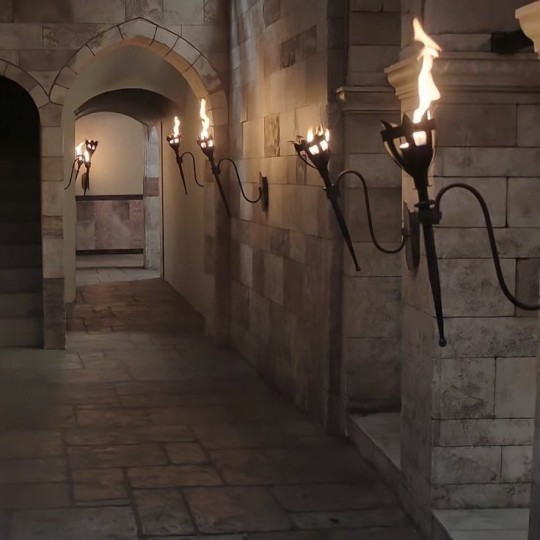
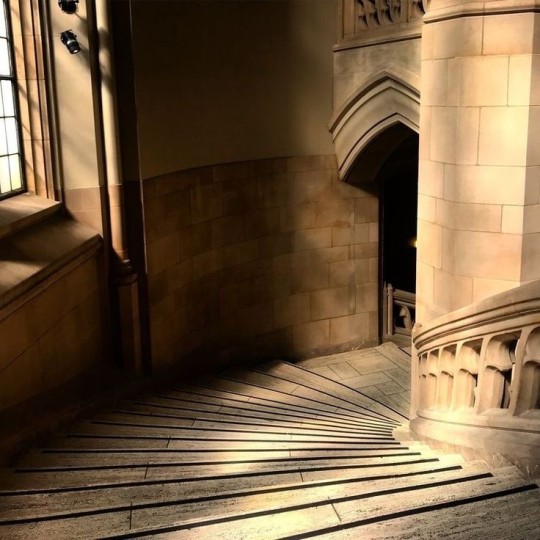
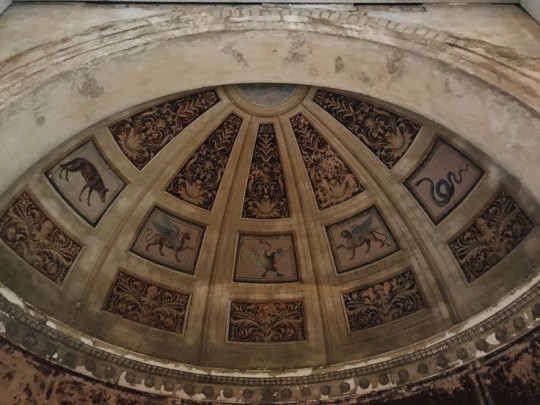

POV:You got lost in old forgotten castle
#chaotic academia#dark academia#dark acadamia aesthetic#romantic academia#dark aesthetic#art#darkness#poems and poetry#dark academism#dark acamedia#dark art#white academia#light academia#aesethic#aesethetic
5K notes
·
View notes
